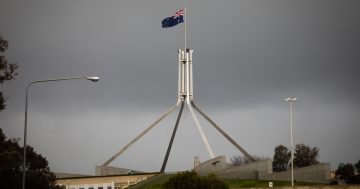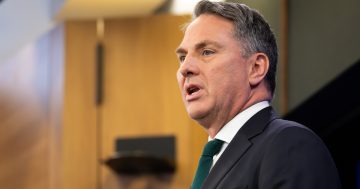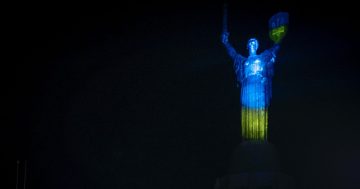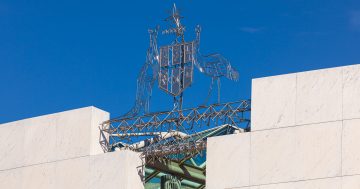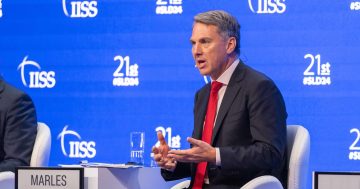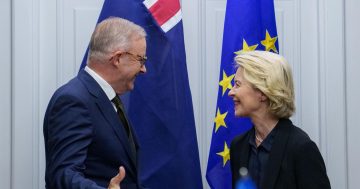Maximilian Hess* says the Uzbek Government’s violent crackdown on protests in Karakalpakstan can have significant consequences for Central Asia — and the power balance between Russia, China and the West.
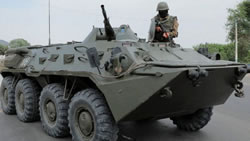 Recently, protests in Uzbekistan’s autonomous Karakalpakstan Region, which borders Kazakhstan in the country’s north-west, turned deadly.
Recently, protests in Uzbekistan’s autonomous Karakalpakstan Region, which borders Kazakhstan in the country’s north-west, turned deadly.
According to the Government, 18 people died and 243 others were wounded as a result of clashes between security forces and protesters. More than 500 were detained.
The unrest had broken out in response to proposed constitutional reforms which would see the vast region lose its autonomy and right to secede.
Uzbek President, Shavkat Mirziyoyev visited the region and announced “order had been restored”. In a U-turn, he also revealed he had dropped plans to curtail the region’s sovereignty.
Amid multiple major crises, from a continuing pandemic to a war in Europe, the news coming from the former Soviet Republic did not attract much global attention.
For many, the events in Karakalpakstan represented nothing but a minor, if bloody, disturbance in a remote and seemingly inconsequential corner of the world.
The perceived remoteness of Karakalpakstan — and perhaps even Uzbekistan — should not trick us into thinking what happens there would not have important consequences for the world.
The crackdown on protesters represents a watershed moment for Mirziyoyev’s political, economic and geopolitical agenda.
Its aftermath may therefore shape not only Karakalpakstan and Uzbekistan’s future, but that of the strategically important wider region.
Uzbekistan is Central Asia’s breadbasket and home to some 35 million people. It is also where Russia, the West and China’s visions of Eurasia collide.
Mirziyoyev has staked his reputation on modernising Uzbekistan. His ambitious reforms include ending forced child labour in the cotton fields and opening up the country to international capital markets.
Mirziyoyev started working towards changing Uzbekistan’s economic and political trajectory immediately after taking over the Presidency from Islam Karimov, the first President of independent Uzbekistan who led the country with an iron fist from 1989 until his death in 2016.
Bottom of Form
Despite the new President’s claims of seeking structural reforms, at the time Uzbekistan had a second power centre in Rustam Inoyatov, head of the feared State Security Service (MXX).
Expectations for major change were low. However, Mirziyoyev started making drastic changes to the way the country was governed.
In 2017, he began lifting crippling currency restrictions and reforming the economy. In 2018, he humiliatingly demoted Inoyatov to Fisheries Minister.
Just weeks after the shocking demotion, he overhauled the MXX, raising the promise of progress.
Around this time, he also began speaking of introducing local elections for hokims — local authorities equivalent to mayors currently appointed by the Executive.
However, the ‘reformist’ President started to change his tune in 2021. He rescinded his suggested changes to the hokim system and all reforms ground to a halt before elections that October.
He was eventually re-elected handily against token opposition.
Mirziyoyev claimed that he was returning to his reform agenda after his re-election, but rather than renewing the prospect of progress, his proposals appeared aimed at allowing him to further consolidate his power.
Now his regime’s violent crackdown on protests in Karakalpakstan has left little doubt that his renewed reform agenda is nothing but a facade.
The violent episode we just witnessed in Karakalpakstan was reminiscent of one of the darkest chapters in recent Uzbek history — the 2005 Andijan massacre when Karimov’s security forces killed hundreds of civilians following unrest in the Fergana Valley.
The massacre was followed by a period of unprecedented repression.
Karimov expelled international media and NGOs from the country, doubled down on kleptocratic autarky and isolated the country further from the international community.
While Mirzoyoyev has signalled that he may eventually return to his initial progressive trajectory, there remains a serious risk he will imitate Karimov’s post-Andijan strategy and focus solely on protecting his own power.
A key factor that will determine which path the Uzbek leader will take in the coming days will be how the international community responds.
Uzbekistan is wary of increasing Russian influence. It became an observer of the Eurasian Economic Union in 2020, resisting Kremlin pressure to become a full member.
Uzbek concerns over Russia’s role in the region are likely to grow rapidly.
Claims Russia was involved in promoting Karakalpakstan’s unrest — adapting its separatist playbook from Georgia, Moldova, and Ukraine — have already proliferated in the country, as suspicious alleged appeals for Russian intervention started to emerge online.
The spectre of Russian hostility could see Uzbekistan with little choice but to fall into what has been dubbed ‘China’s inadvertent empire’.
Beijing became Uzbekistan’s largest trade partner in 2016 and is by far its largest foreign investor, but its political influence has yet to match this.
The West has long been disengaged from the country, despite Uzbekistan’s open call for investment and collaboration under Mirzoyoyev’s rule.
Declarations of intent to re-engage with Central Asia emerge sporadically but offer little new.
Officials on a recent United States delegation to Central Asia spoke of using counter-terrorism and security cooperation to counter-balance Russia, though all previous efforts have failed.
Mirziyoyev may not be a democrat, but he has, at least until very recently, proven to be someone the West can do business with.
His reaction to Karakalpakstan’s unrest will determine whether this came from conviction or convenience.
How the world responds in turn will shape the balance of power at the heart of Eurasia.
To maintain at least some influence over a seemingly remote but crucially important country, and to ensure the wellbeing of the people of Uzbekistan, the West should do everything it can to help bring Mirziyoyev back on the path of reform and progress.
*Maximilian Hess is a Fellow at the Foreign Policy Research Institute and a political risk consultant based in London.
This article first appeared on the Al Jazeera website.


